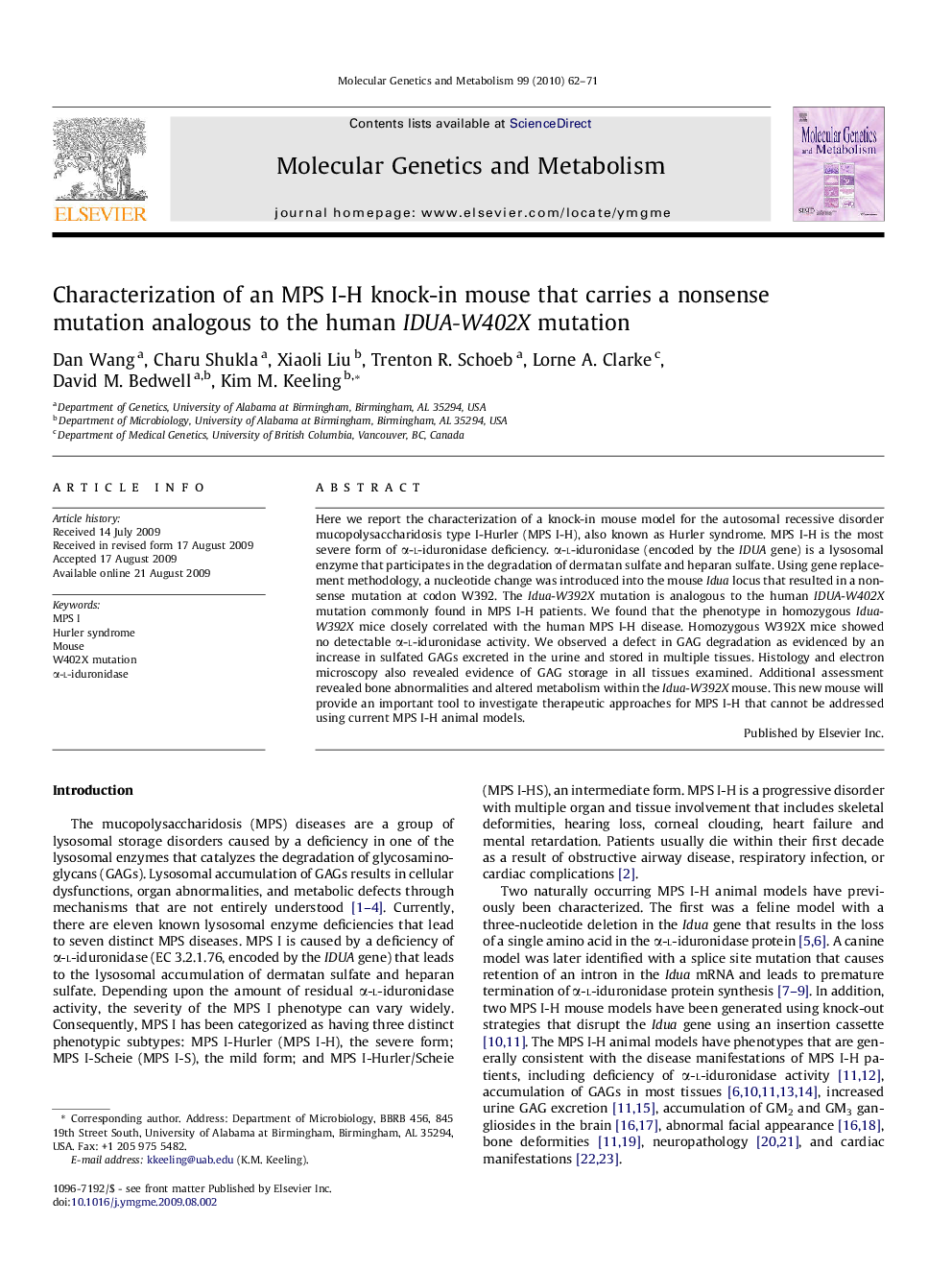| Article ID | Journal | Published Year | Pages | File Type |
|---|---|---|---|---|
| 1998587 | Molecular Genetics and Metabolism | 2010 | 10 Pages |
Here we report the characterization of a knock-in mouse model for the autosomal recessive disorder mucopolysaccharidosis type I-Hurler (MPS I-H), also known as Hurler syndrome. MPS I-H is the most severe form of α-l-iduronidase deficiency. α-l-iduronidase (encoded by the IDUA gene) is a lysosomal enzyme that participates in the degradation of dermatan sulfate and heparan sulfate. Using gene replacement methodology, a nucleotide change was introduced into the mouse Idua locus that resulted in a nonsense mutation at codon W392. The Idua-W392X mutation is analogous to the human IDUA-W402X mutation commonly found in MPS I-H patients. We found that the phenotype in homozygous Idua-W392X mice closely correlated with the human MPS I-H disease. Homozygous W392X mice showed no detectable α-l-iduronidase activity. We observed a defect in GAG degradation as evidenced by an increase in sulfated GAGs excreted in the urine and stored in multiple tissues. Histology and electron microscopy also revealed evidence of GAG storage in all tissues examined. Additional assessment revealed bone abnormalities and altered metabolism within the Idua-W392X mouse. This new mouse will provide an important tool to investigate therapeutic approaches for MPS I-H that cannot be addressed using current MPS I-H animal models.
